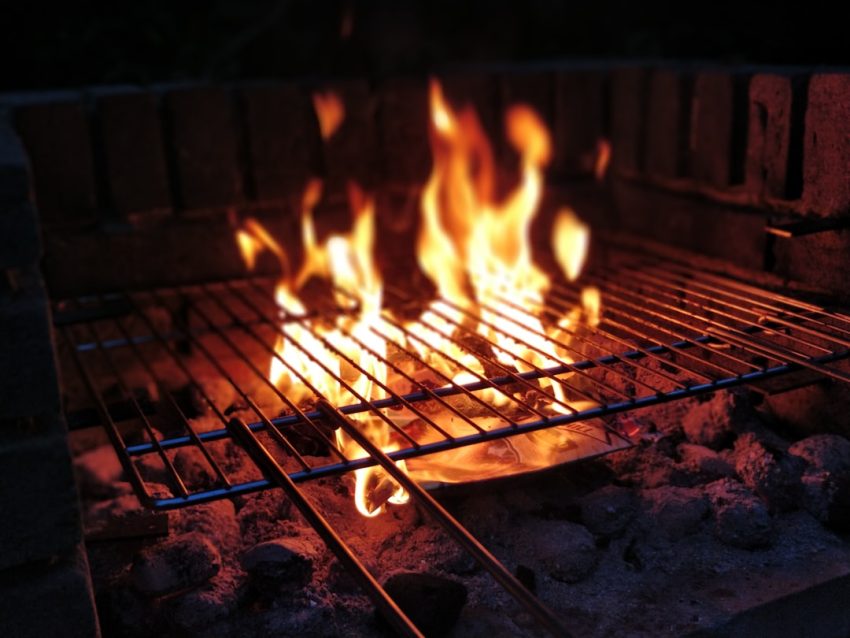Selecting the perfect meat (beef, chicken, turkey, venison) is key for an exceptional BBQ jerky recipe. Lean cuts ensure tenderness and flavor. Marinades with soy sauce, vinegar, garlic, brown sugar enhance taste. Dehydrate at 49-71°C for 6-8 hours for a crispy texture. Store in airtight containers at room temp for up to 2 weeks. Customize your recipe with spices, herbs, and meat combinations to find your perfect blend.
Looking to craft the perfect BBQ jerky at home? This comprehensive guide provides easy-to-follow instructions for creating mouthwatering, homemade jerky. From selecting the right meats to choosing the best marinade and mastering the art of drying, we cover everything you need to know. Learn tips for even seasoning, storage advice, and common mistakes to avoid. Plus, discover how to customize your BBQ jerky recipe to suit your taste preferences. Get ready to impress with this ultimate DIY guide to a classic American snack!
- Selecting the Right Meats for BBQ Jerky
- Preparing Your Ingredients and Cutting Techniques
- Marinade Basics: A Simple Guide
- The Art of Drying: Choosing and Setting Up Your Dehydrator
- Cooking Tips for Evenly Seasoned Jerky
- Storage and Shelf Life: Keeping Your Creation Fresh
- Common Mistakes to Avoid During the Process
- Customizing Your BBQ Jerky Recipe
Selecting the Right Meats for BBQ Jerky
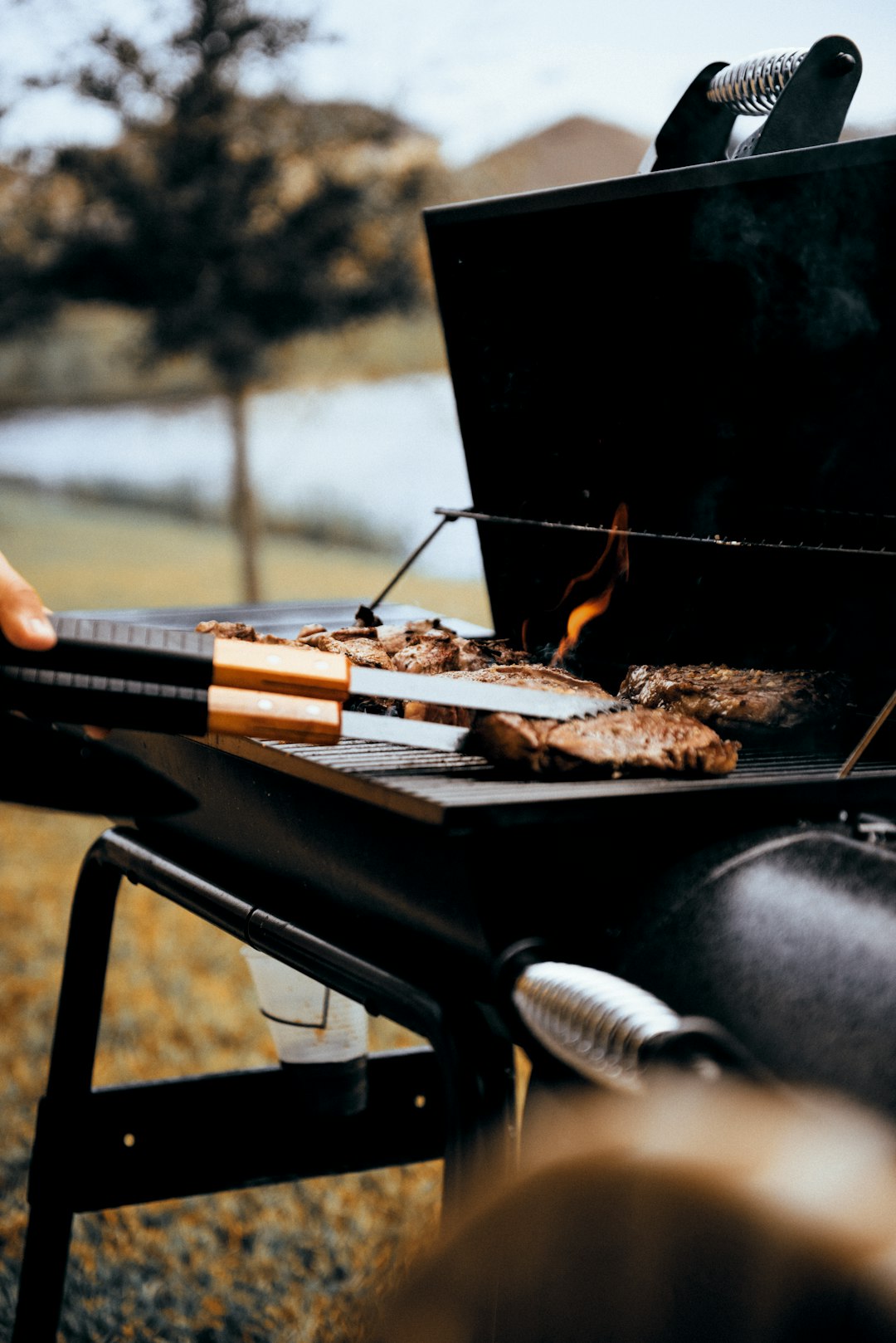
When crafting your perfect BBQ jerky, choosing the right meats is half the battle won. Opt for lean cuts of meat like beef chuck or round steak, as they tend to produce a tender and flavorful jerky with minimal fat content. These cuts ensure that your jerky stays crisp and doesn’t become overly greasy.
In a BBQ jerky recipe, you want a balance of protein and flavor. Experimenting with different meats like chicken, turkey, or even venison can add variety to your jerky game. Just remember, the key is to select high-quality, fresh meats that will marinate well and stand up to the drying process, ultimately resulting in a delicious treat that satisfies your cravings.
Preparing Your Ingredients and Cutting Techniques
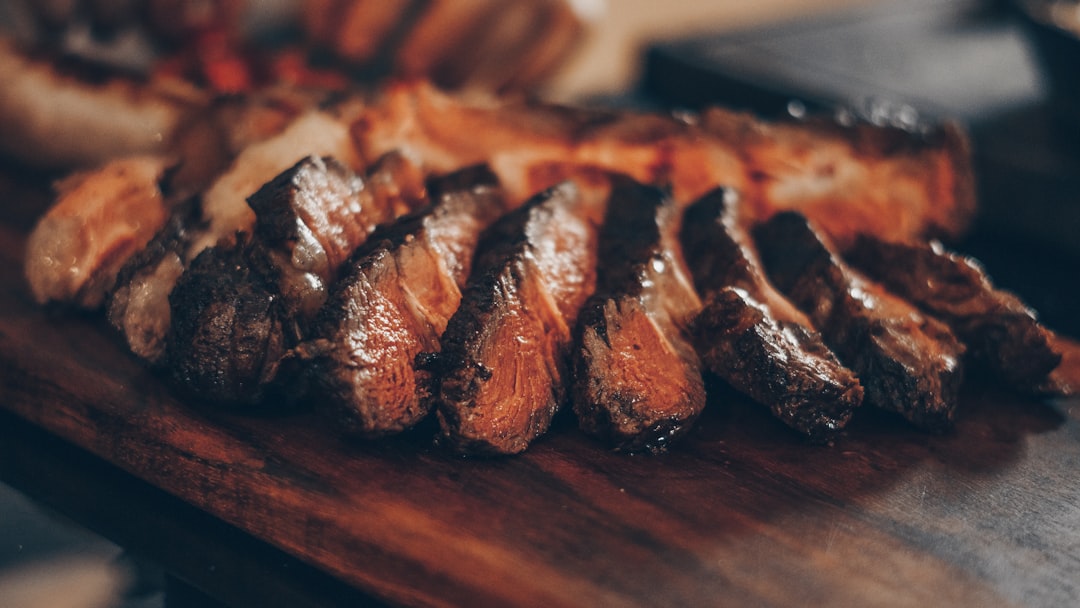
When preparing your ingredients for a BBQ jerky recipe, start by selecting high-quality lean meats such as beef or venison. Cut the meat into thin, even slices to ensure even cooking and maximum tenderness. This step is crucial in creating a delicious, well-textured final product.
For optimal results, use sharp knives or a meat slicer to cut your meat. Aim for slices that are approximately 1/8 inch (3 mm) thick. Uniform thickness guarantees that the jerky cooks evenly, preventing some pieces from becoming overdone while others remain undercooked. Proper cutting techniques also help ensure that the flavors of your BBQ sauce penetrate every bite.
Marinade Basics: A Simple Guide
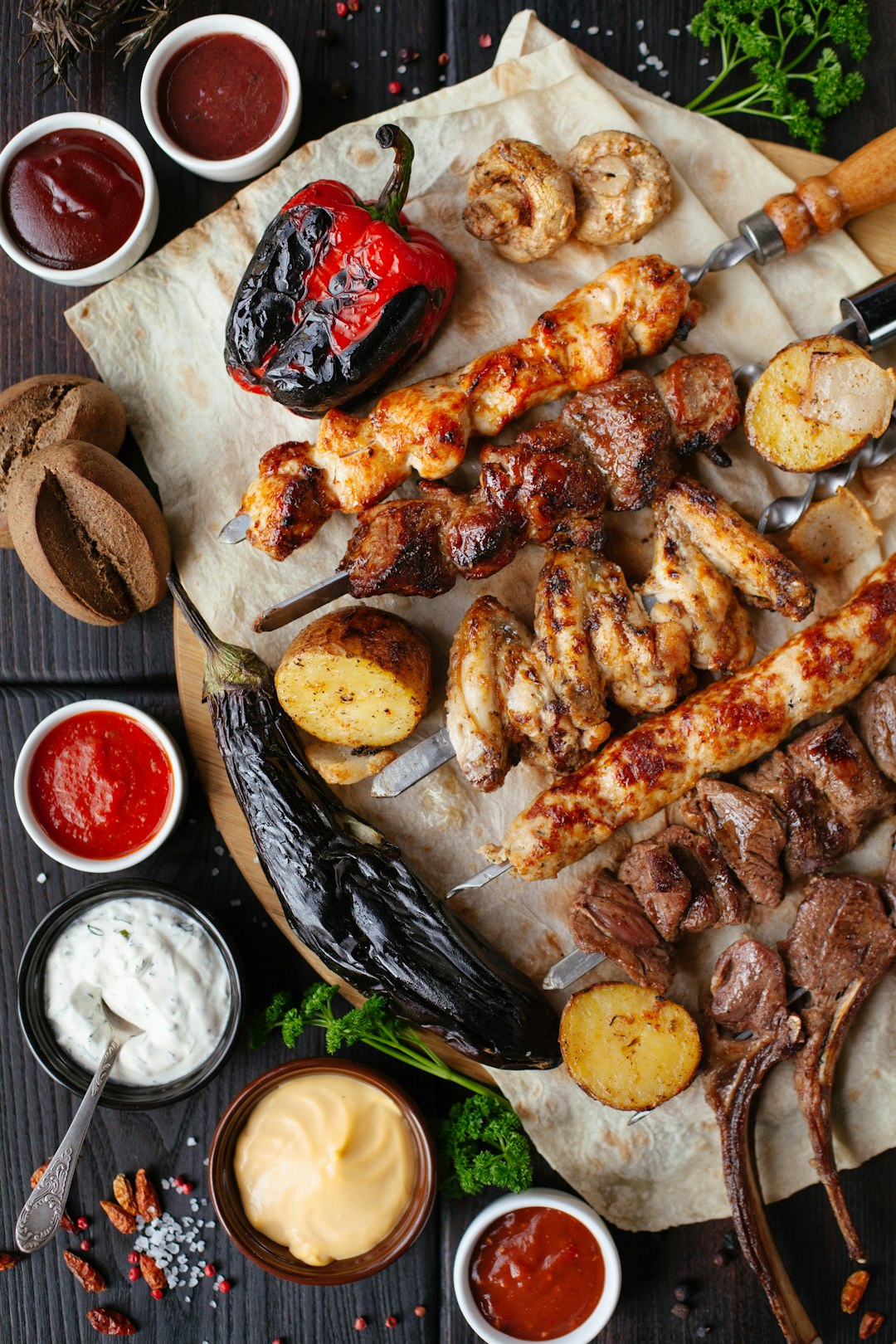
Marinades are a key component in creating delicious, tender BBQ jerky. For a basic BBQ jerky recipe, start with a simple combination of ingredients like soy sauce, vinegar, garlic, and brown sugar. These fundamental elements provide a savory, slightly tangy flavor profile that complements the meat’s natural taste. Adjusting the ratios to suit your preference is easy – more soy sauce for saltiness, vinegar for acidity, or garlic for a pungent kick.
When marinating, consider the type of meat you’re using. Beef, chicken, and turkey are popular choices for jerky due to their lean protein content. The marinade penetrates the muscle fibers, breaking them down slightly and making the final product incredibly tender. Allow adequate time for soaking – typically 2-4 hours in the refrigerator – to ensure the flavors infuse properly.
The Art of Drying: Choosing and Setting Up Your Dehydrator
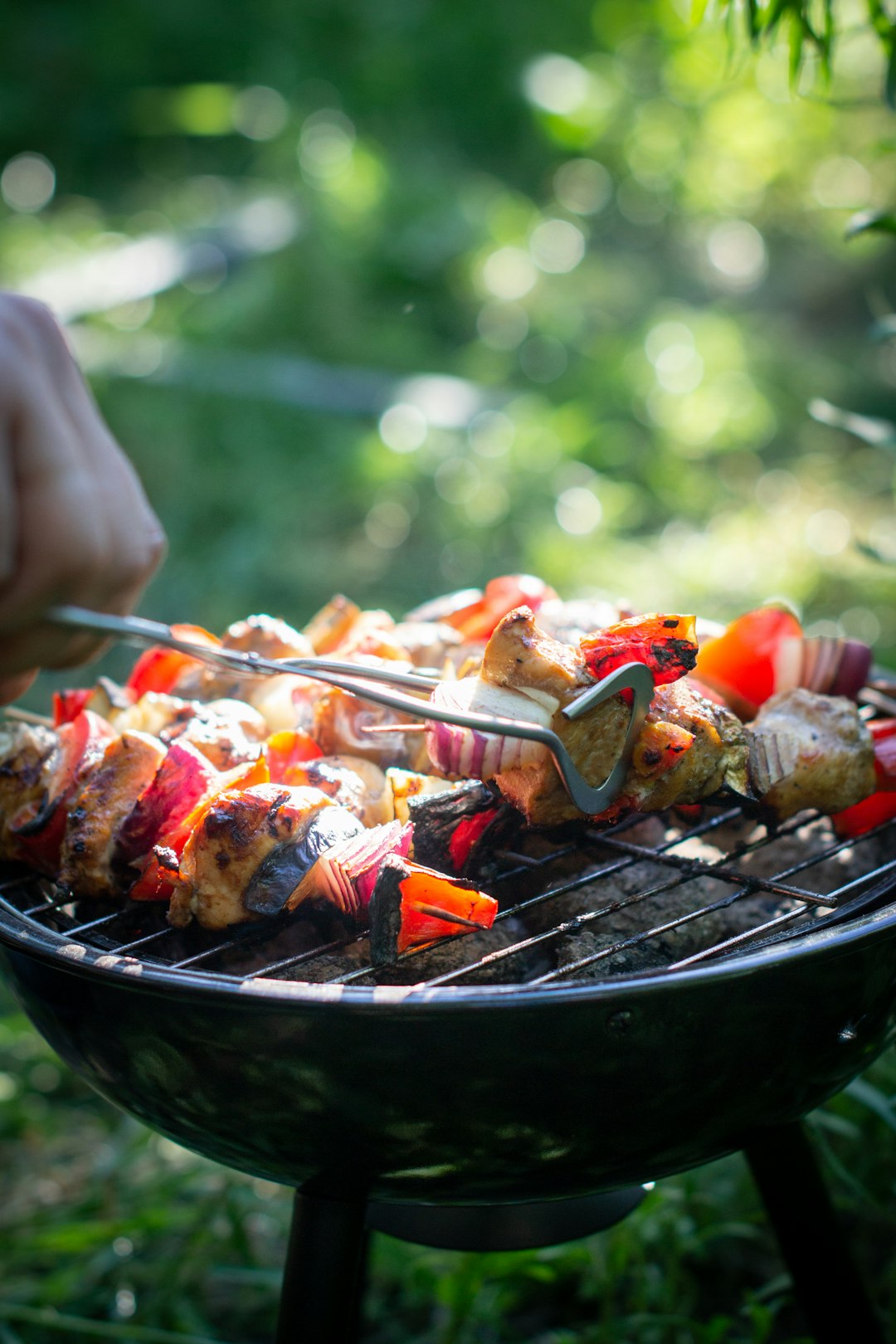
The art of drying is a crucial step in crafting the perfect BBQ jerky recipe. At its heart, this process involves using a dehydrator to slowly remove moisture from raw meat, transforming it into a chewy, flavorful snack. When setting up your dehydrator, consider factors like temperature control and airflow. Most dehydrators offer adjustable settings for precise temperature management, typically ranging from 120°F to 160°F (49°C to 71°C). This range is ideal for jerky as it allows for slow, consistent drying without overcooking the meat and ensuring a safe, shelf-stable product.
Ensure proper airflow by arranging your dehydrator trays strategically. The even circulation of air helps prevent clumping and promotes uniform drying. Line the trays with parchment paper or a non-stick mat to facilitate easy cleanup and ensure the jerky doesn’t stick. With the right setup, you’re well on your way to creating a mouthwatering BBQ jerky recipe that will satisfy anyone’s cravings.
Cooking Tips for Evenly Seasoned Jerky
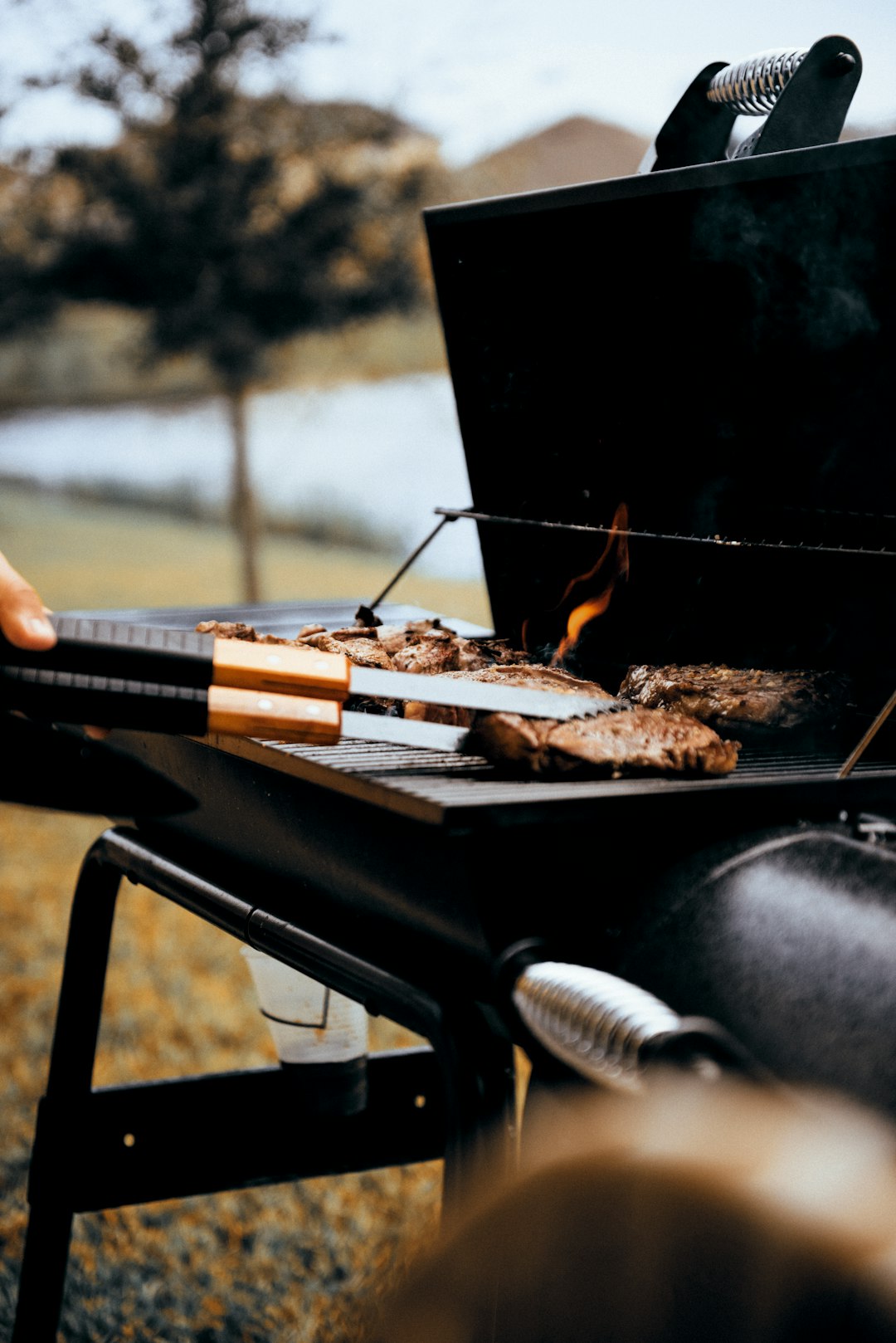
When preparing your BBQ jerky, one of the key aspects for a successful and evenly seasoned result is maintaining an even cooking temperature. Aim to keep your oven or grill at a consistent 250-300°F (120-149°C). This range ensures slow and steady cooking, allowing the flavors to penetrate the meat thoroughly without overcooking or burning it. Regularly checking the internal temperature of the jerky with a meat thermometer is essential; this way, you can prevent overdoing it and ensure each piece turns out perfectly.
For the best-tasting BBQ jerky recipe, consider marinating your meat beforehand. This step adds depth to the flavor profile. Use a simple mixture of vinegar, oil, salt, pepper, and your favorite BBQ sauce or spices. Soak the meat for a few hours or overnight; this process tenderizes it and ensures an even distribution of flavors. After marinating, pat the meat dry before arranging it on baking sheets lined with parchment paper, ensuring no overlap to allow even air circulation during cooking.
Storage and Shelf Life: Keeping Your Creation Fresh
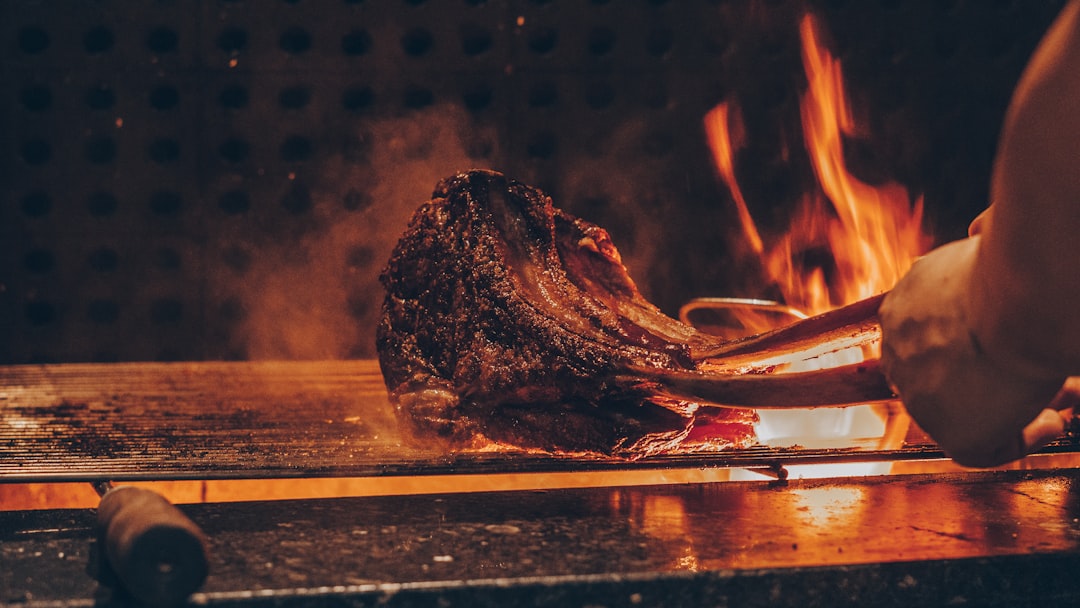
After crafting your perfect BBQ jerky, proper storage is key to maintaining its deliciousness and extending its shelf life. Store your homemade jerky in an airtight container or resealable bag at room temperature. Avoid keeping it in direct sunlight or near heat sources, as this can accelerate spoilage. Label the container with the date of preparation for easy tracking.
The shelf life of BBQ jerky varies depending on storage conditions and ingredients used. Generally, when stored correctly, your creation can last anywhere from 1 to 2 weeks. For longer-lasting jerky, consider freezing it in small portions. This will preserve its quality for up to 3 months. Remember, while a DIY BBQ jerky recipe is a fun culinary adventure, proper food safety practices are essential to keep your creation as tasty and safe as possible.
Common Mistakes to Avoid During the Process
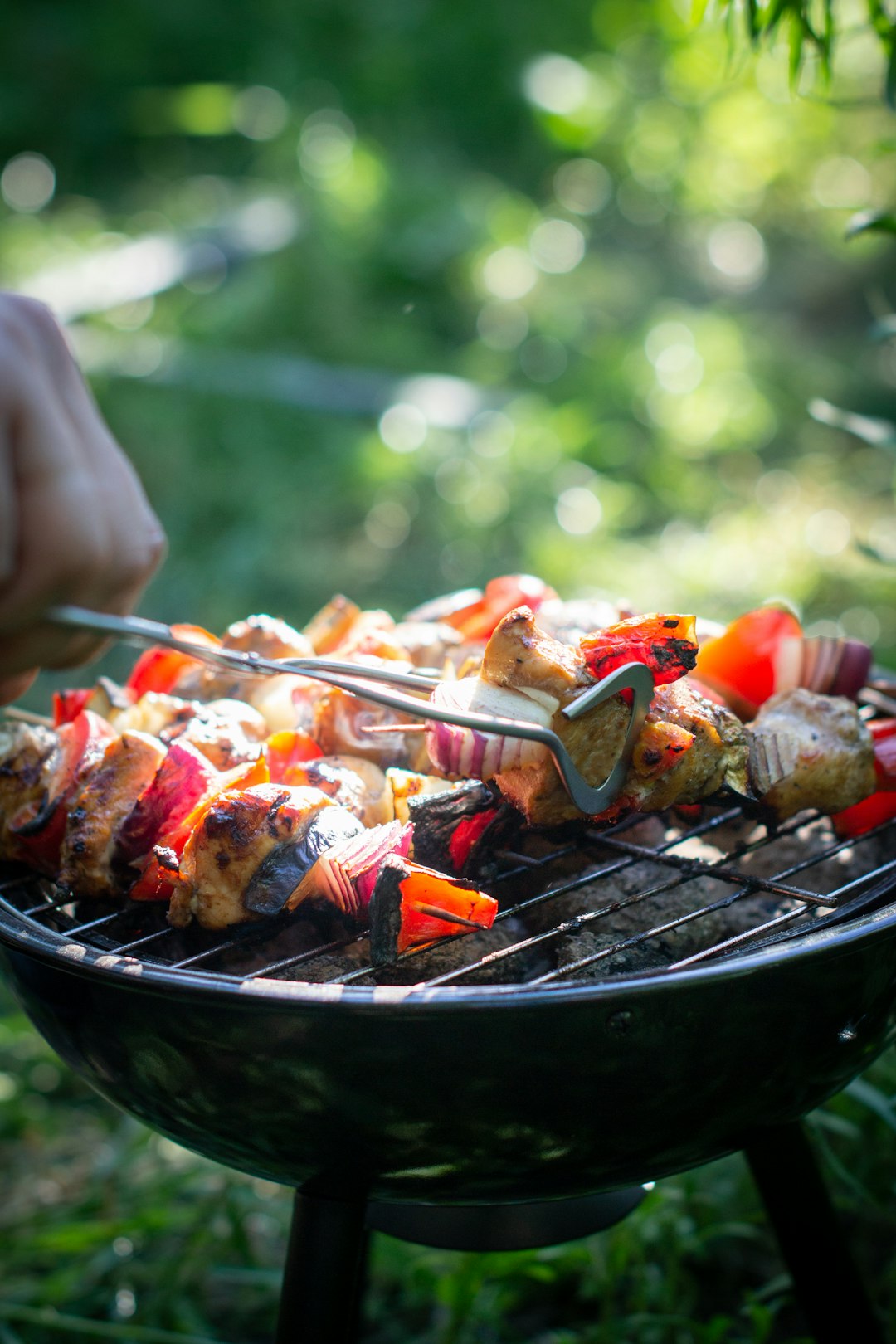
When making BBQ jerky at home, it’s easy to get caught up in the excitement and make some common mistakes that can ruin your delicious creation. One of the biggest blunders is overlooking the importance of meat quality; always opt for fresh, high-quality cuts of meat for the best flavor. Using old or low-grade beef can result in a tough, unpleasant final product.
Another mistake to avoid is inconsistent seasoning. BBQ jerky recipes often call for specific ingredients and ratios, so be sure to measure accurately and follow the instructions carefully. Over-salting or under-spicing will significantly impact the taste, so use a kitchen scale and be precise with your measurements. Additionally, don’t rush the drying process; allowing the meat to dry properly is crucial for developing that crispy, delicious texture.
Customizing Your BBQ Jerky Recipe
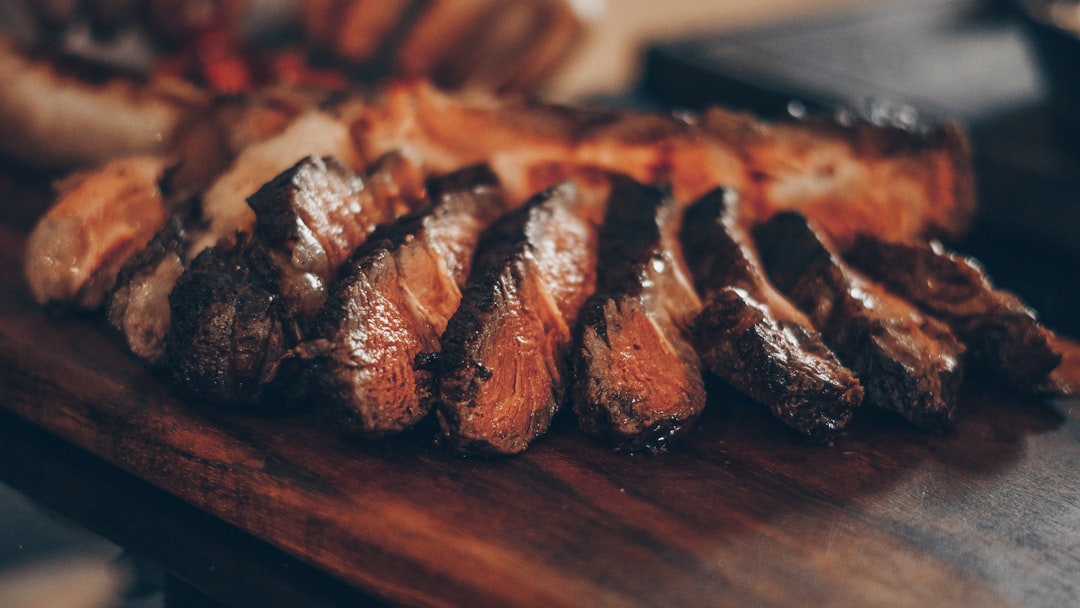
When crafting your perfect BBQ jerky, customization is key. The beauty of making your own lies in tailoring the flavor profile to your exact preferences. Start with a basic recipe, but feel free to experiment with different spices and marinades. Paprika, garlic, onion powder, salt, and black pepper form a solid foundation for many BBQ jerky recipes. However, you can get creative by adding a touch of cayenne pepper for heat, chili powder for smokiness, or even dried herbs like thyme or rosemary for an aromatic twist.
Don’t be afraid to explore different meats too. While beef is the classic choice, chicken and turkey offer leaner options with slightly different textures. You can also try mixing meats to create unique combinations. Remember, the key to a successful BBQ jerky recipe is balance – blending your chosen flavors until you achieve that ideal taste that suits your palate perfectly.
